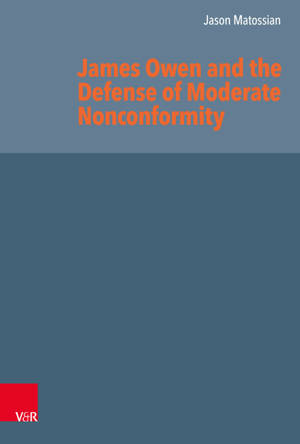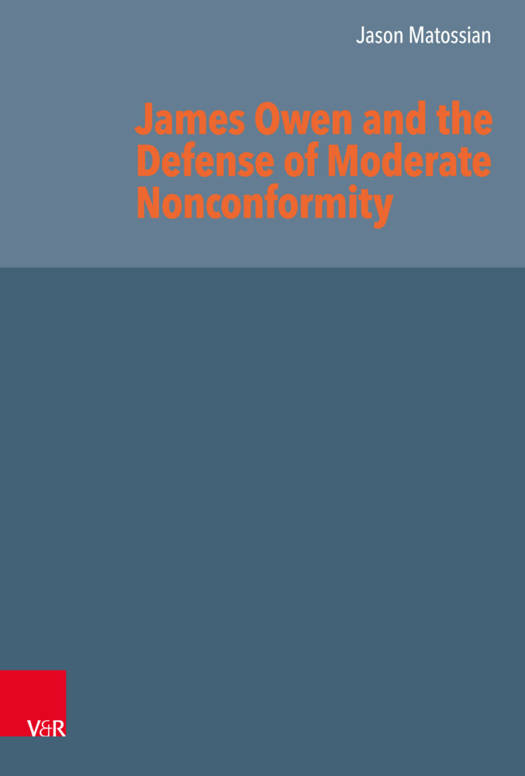
Bedankt voor het vertrouwen het afgelopen jaar! Om jou te bedanken bieden we GRATIS verzending (in België) aan op alles gedurende de hele maand januari.
- Afhalen na 1 uur in een winkel met voorraad
- In januari gratis thuislevering in België
- Ruim aanbod met 7 miljoen producten
Bedankt voor het vertrouwen het afgelopen jaar! Om jou te bedanken bieden we GRATIS verzending (in België) aan op alles gedurende de hele maand januari.
- Afhalen na 1 uur in een winkel met voorraad
- In januari gratis thuislevering in België
- Ruim aanbod met 7 miljoen producten
Zoeken
James Owen and the Defense of Moderate Nonconformity
Jason Matossian
€ 195,45
+ 390 punten
Uitvoering
Omschrijving
The period of Revolution and Toleration in England was filled with rapid change, political uncertainty, and ecclesiastical volatility. Still recovering from the strife of Civil War and a divisive Restoration, the relationship between the Church of England and Nonconformists remained deeply strained. Although Dissenters were granted the right to gather for worship under Toleration, their legitimacy was regularly challenged. Within this context, a variety of significant controversies arose in which James Owen, a Welsh Presbyterian minister, played a prominent role and was a leading voice for moderate Nonconformity. Along with a group of moderate Nonconformist friends like Edmund Calamy, Philip and Matthew Henry, and Francis Tallents, Owen defended a version of Protestant ecumenism. This was a theological conviction that (1) the unity of the Protestant Church was indispensable and (2) this unity was to be found in agreement on essential doctrines, not in sharing ecclesiastical structures. Owen, along with his associates, defended the Dissenters' separation from the Church of England as biblically sanctioned and at the same time emphasized that such separation was not schismatic. Owen's clear, biblically articulate, and historically informed writing made his contribution to the period of Toleration significant and influential.
Specificaties
Betrokkenen
- Auteur(s):
- Uitgeverij:
Inhoud
- Aantal bladzijden:
- 166
- Taal:
- Engels
- Reeks:
- Reeksnummer:
- nr. 71
Eigenschappen
- Productcode (EAN):
- 9783525560488
- Verschijningsdatum:
- 17/01/2022
- Uitvoering:
- Hardcover
- Formaat:
- Genaaid
- Afmetingen:
- 155 mm x 231 mm
- Gewicht:
- 416 g

Alleen bij Standaard Boekhandel
+ 390 punten op je klantenkaart van Standaard Boekhandel
Beoordelingen
We publiceren alleen reviews die voldoen aan de voorwaarden voor reviews. Bekijk onze voorwaarden voor reviews.









